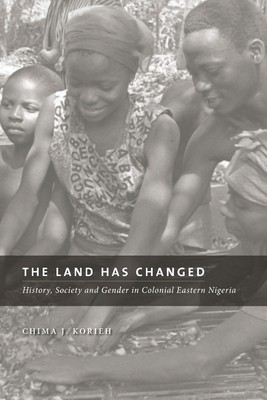
- We will send in 10–14 business days.
- Author: Chima J Korieh
- Publisher: University of Calgary Press
- Year: 2010
- Pages: 390
- ISBN-10: 1552382680
- ISBN-13: 9781552382684
- Format: 15.2 x 22.6 x 2.5 cm, minkšti viršeliai
- Language: English
- SAVE -10% with code: EXTRA
Reviews
Description
A century ago, agriculture was the dominant economic sector in much of Africa. By the 1990s, however, African farmers had declining incomes and were worse off, on average, than those who did not farm. Colonial policies, subsequent 'top-down' statism, and globalization are usually cited as primary causes of this long-term decline. In this unprecedented study of the Igbo region of southeastern Nigeria, Chima Korieh points the way to a more complex and inclusive approach to this issue. Using agricultural change as a lens through which to view socio-economic and cultural change, political struggle, and colonial hegemony, Korieh shows that regional dynamics and local responses also played vital roles in this era of transformation.
British attempts to modernize the densely populated Igbo region were focused largely on intensive production of palm oil as a cash crop for export and on the assumption of male dominance within a conventional western hierarchy. This colonial agenda, however, collided with a traditional culture in which females played important social and political roles and male status was closely tied to yam cultivation. Drawing on an astonishing array of sources, including oral interviews, newspapers, private journals, and especially letters of petition from local farmers and traders, Korieh puts the reader in direct contact with ordinary people, evoking a feeling of what it was like to live through the era. As such, The Land Has Changed reveals colonial interactions as negotiated encounters between officials and natives and challenges simplistic notions of a hegemonic colonial state and a compliant native population.
EXTRA 10 % discount with code: EXTRA
The promotion ends in 22d.00:17:38
The discount code is valid when purchasing from 10 €. Discounts do not stack.
- Author: Chima J Korieh
- Publisher: University of Calgary Press
- Year: 2010
- Pages: 390
- ISBN-10: 1552382680
- ISBN-13: 9781552382684
- Format: 15.2 x 22.6 x 2.5 cm, minkšti viršeliai
- Language: English English
A century ago, agriculture was the dominant economic sector in much of Africa. By the 1990s, however, African farmers had declining incomes and were worse off, on average, than those who did not farm. Colonial policies, subsequent 'top-down' statism, and globalization are usually cited as primary causes of this long-term decline. In this unprecedented study of the Igbo region of southeastern Nigeria, Chima Korieh points the way to a more complex and inclusive approach to this issue. Using agricultural change as a lens through which to view socio-economic and cultural change, political struggle, and colonial hegemony, Korieh shows that regional dynamics and local responses also played vital roles in this era of transformation.
British attempts to modernize the densely populated Igbo region were focused largely on intensive production of palm oil as a cash crop for export and on the assumption of male dominance within a conventional western hierarchy. This colonial agenda, however, collided with a traditional culture in which females played important social and political roles and male status was closely tied to yam cultivation. Drawing on an astonishing array of sources, including oral interviews, newspapers, private journals, and especially letters of petition from local farmers and traders, Korieh puts the reader in direct contact with ordinary people, evoking a feeling of what it was like to live through the era. As such, The Land Has Changed reveals colonial interactions as negotiated encounters between officials and natives and challenges simplistic notions of a hegemonic colonial state and a compliant native population.


Reviews